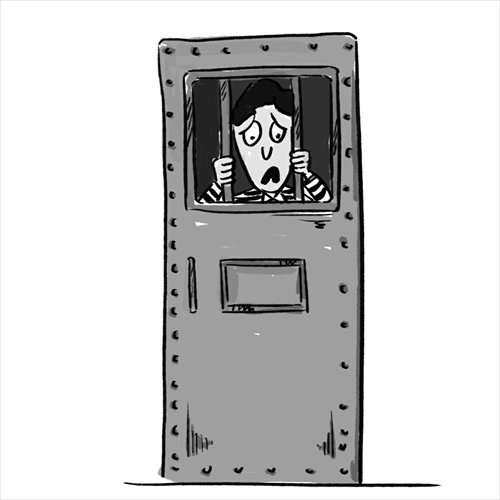
Illustrations: Chen Xia/GT
Last week at a Southern California criminal court, three young Chinese nationals were sentenced to prison. Zhang Xinlei, Yang Yuhan and Zhai Yunyao received jail terms of six years, 10 years and 13 years respectively for their roles in the brutal torture of a fellow Chinese. What did they have in common? They were all students enrolled at a Los Angeles boarding school.
As reported in the Los Angeles Times, the bullies were arrested and prosecuted following their assault on a female Chinese student, whom they stripped naked, burned her nipples with cigarettes, kicked in the stomach with high heels and forced her to eat her own cut-off hair. Their only excuse for the attack was an "unsupervised lifestyle" after being sent abroad.
The case made the rounds on Chinese social media, with netizens supporting the strict punishment in the hopes that China's legal system will also start to be less lenient toward bullies, who tend to come from wealthy families and bribe their way out of punishment. Indeed, parents in the LA incident attempted to obstruct American justice by paying people off, a common practice in China.
The case occurred as a growing number of students from China are being sent by their parents to overseas high schools and universities for what they hope is a better education. During the 2014-2015 academic year, there were 300,000 Chinese students studying stateside, a 10 percent increase over the previous year, making China the leading country of origin for international students in the US.
Due to China's large population and hyper-competitive academic climate, an American education is viewed by many middle-class Chinese parents as an alternative to seeing their children struggle with score-centric exams. These parents would rather pay millions of yuan in overseas tuition and boarding expenses than risk seeing their children fail the gaokao (China's notorious national college entrance exam).
What many Chinese parents don't realize, however, is that far from assimilating into the "Great American Melting Pot," what tends to happen instead is that Chinese students form their own reclusive social circles utterly devoid of any Western friends or even the English language. Compounding this self-segregation is the unfortunate fact that some of these boarding schools are not real schools but just vacant facilities where the kids are free to do what they want. Virtually abandoned by their parents and left unsupervised by teachers, sex, drugs and crime inevitably become part of their new American-style lifestyle.
As the mother of a teenaged daughter who will be going off to college in just a few years, I was naturally alarmed by this case. Over the weekend I raised the issue with her and my husband during dinner. If her scores don't improve these last few years of high school, then we may have to consider sending her abroad rather than enroll her in lower-tier Chinese university. But based on this and other similar cases, we are mistrustful of the agencies that help arrange overseas studies programs, many who cover up the dark sides of these schools and exaggerate their merits just to earn their commission. The so-called school that the three Chinese delinquents in LA attended, for example, was unbeknownst to their parents just a few portable cubicles in back of a mall.
Of even greater importance, however, is to make sure that our daughter has learned personal responsibility and ethics before we send her off to live alone. As parents, it is our role - not school's and not society's - to raise our children to be able to function independently and competently in the world within a moral framework. If, however, a student can't succeed without our constant presence, assistance and indulgence (called "helicopter parenting"), then there's a reasonable chance they won't do too well on their own abroad, and may even find themselves in trouble there.
The opinions expressed in this article are the author's own and do not necessarily reflect the views of the Global Times.

